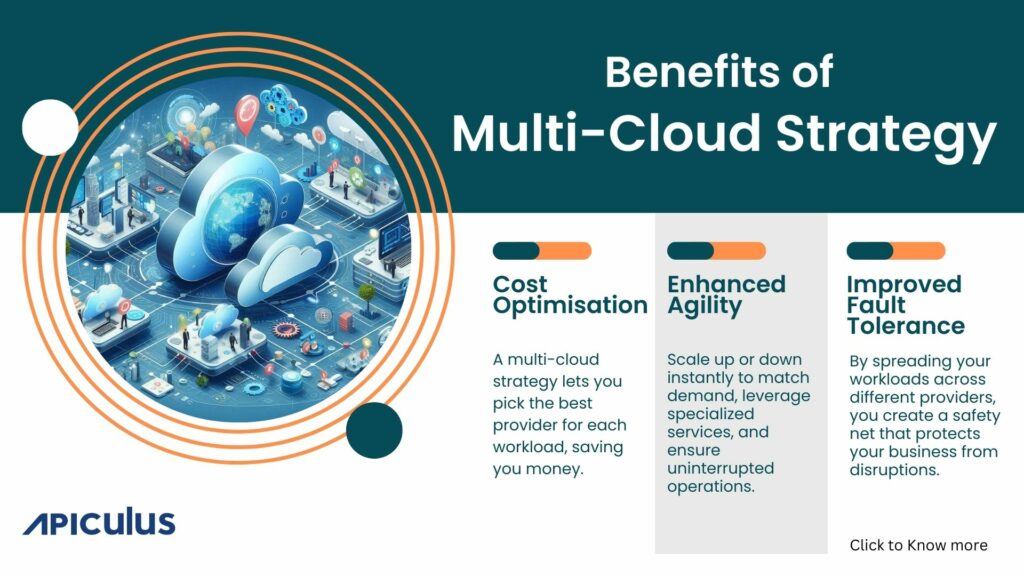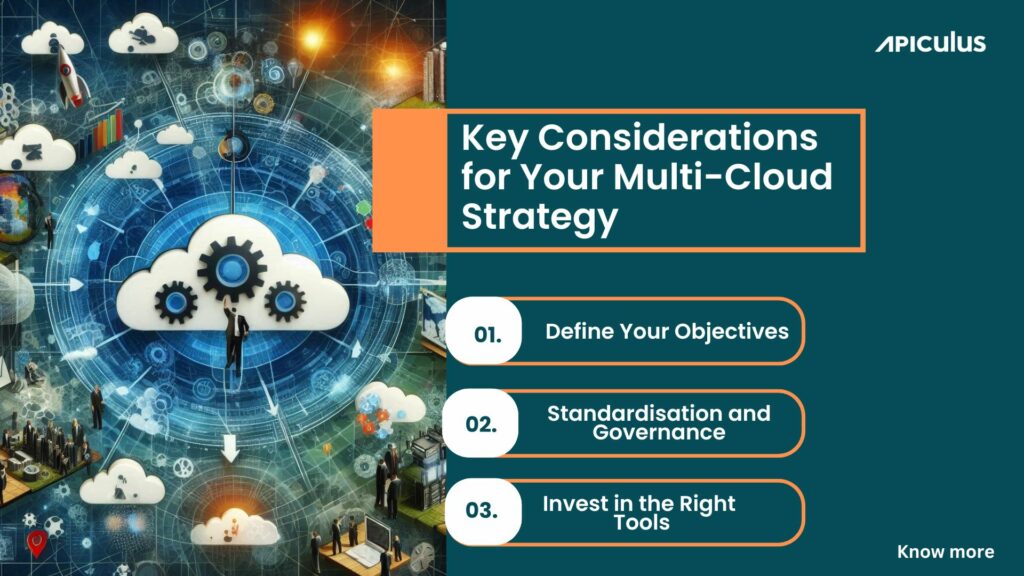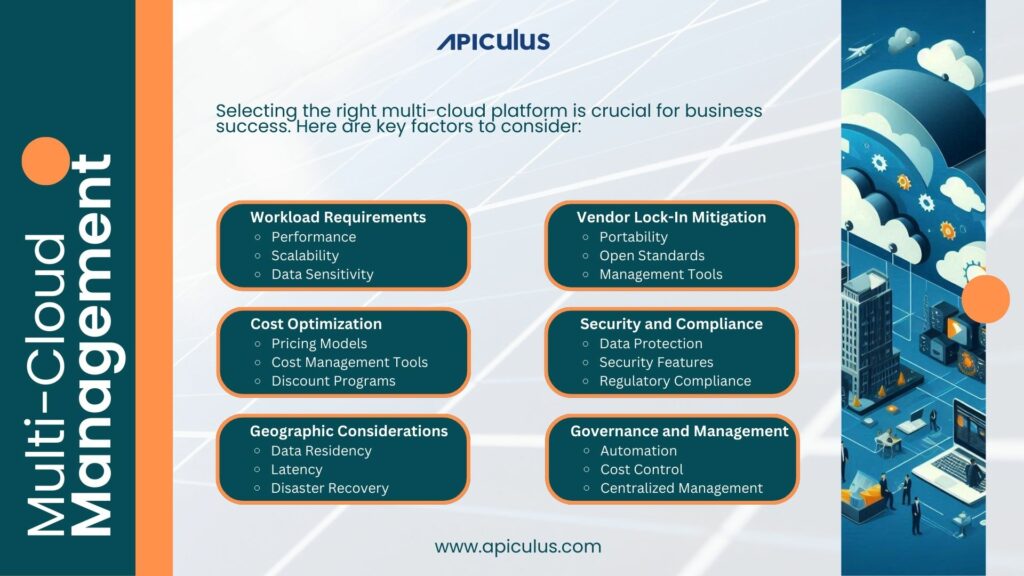The cloud revolution has fundamentally transformed how businesses operate. On-demand resources, unparalleled scalability, and worldwide reach have propelled cloud adoption to unprecedented levels. However, for many companies, the initial allure of a single, all-encompassing cloud provider has faded. Businesses are increasingly accepting the limitations of a single-cloud approach, particularly when it comes to cost saving, access to specialized services, and vendor lock-in. As a result, a multi-cloud strategy is emerging as a compelling alternative, offering enhanced flexibility, cost optimization, and risk mitigation.
This realisation has paved the way for the multi-cloud strategy: a dynamic approach that leverages the strengths of multiple cloud providers to achieve optimal performance and cost-effectiveness. Instead of relying on a single vendor, businesses strategically select and utilise services from different cloud providers to create a customised cloud ecosystem that aligns perfectly with their unique needs.
While a multi-cloud strategy unlocks numerous benefits, managing a diverse infrastructure across different providers can quickly become complex. Juggling multiple consoles with distinct user interfaces, inconsistent security policies across platforms, and the ever-present risk of vendor lock-in can hinder agility and efficiency. IT teams can find themselves stretched thin, struggling to maintain visibility and control over a constantly evolving multi-cloud environment.
Also Read – Extending CloudStack To Deliver a Multi-Availability Zone Public Cloud
This is where a well-defined multi-cloud strategy plays a crucial role. It’s not just about haphazardly adopting multiple cloud platforms; it’s about establishing a framework for seamless management, optimised resource utilisation, and robust security practices across a heterogeneous environment. A comprehensive multi-cloud strategy goes beyond simply selecting providers. It encompasses a holistic approach that addresses key considerations, empowers your IT team, and unlocks the full potential of this dynamic cloud approach.
What is Multi-Cloud Strategy?
A multi-cloud strategy involves utilizing cloud services from multiple service providers rather than relying solely on a single platform. This approach allows organizations to optimize their IT infrastructure, cost, improve flexibility, and mitigate risks. By strategically selecting cloud providers based on specific workload requirements, cost, and performance, businesses can achieve greater efficiency and innovation.
Benefits of a Multi-Cloud Strategy: A Symphony of Advantages

The advantages of implementing a well-defined multi-cloud strategy are multifaceted, offering businesses a competitive edge in today’s dynamic market landscape. Let’s delve deeper into some of the key benefits:
Cost Optimisation: A Conductor of Efficiency
In a single-cloud environment, businesses are often limited to the pricing structures and service offerings of a single provider. A multi-cloud strategy empowers you to break free from these constraints. By strategically selecting cloud providers based on their strengths and pricing models for specific workloads, you can achieve significant cost savings. For instance, you can leverage the cost-effective compute resources of one provider for basic workloads, while utilising the specialised AI and machine learning services offered by another for more complex tasks. This targeted approach ensures you’re not paying a premium for generic services when a more cost-effective option exists.
Enhanced Agility: Embracing Change with Unmatched Flexibility
The business landscape is constantly evolving, and the ability to adapt quickly is paramount for success. A multi-cloud strategy provides unparalleled flexibility, allowing you to scale resources up or down dynamically based on changing business demands. Need to rapidly launch a new marketing campaign? Provision additional resources from a cloud provider known for its high-performance web hosting services. Encountering a surge in customer traffic for your e-commerce platform? Scale your storage capacity with another provider renowned for its scalable and reliable storage solutions. This level of agility empowers you to respond to market fluctuations and capitalise on new opportunities with unmatched speed.
Improved Fault Tolerance: A Shield Against Outage
Single points of failure are a major concern in the cloud. A multi-cloud strategy mitigates this risk by distributing your workloads across different cloud providers. If one provider experiences an outage, your applications and services can continue running uninterrupted on the others. This redundancy ensures business continuity and minimises the impact of unforeseen disruptions. Imagine a critical customer service application hosted on a single cloud provider. An unexpected outage could leave your customers stranded and damage your reputation. By distributing this application across multiple cloud providers, you safeguard its availability and ensure a seamless customer experience even during unforeseen circumstances.
Access to Specialised Services: A Universe of Possibilities
Cloud providers offer a vast array of services, but each provider excels in specific areas. A multi-cloud strategy allows you to tap into this diverse ecosystem of specialised services, unlocking new capabilities and fostering innovation. For instance, you might leverage the high-performance computing services of one provider for complex scientific simulations, while utilising the advanced analytics tools offered by another to gain deeper insights from your customer data. This ability to access best-in-class services from different providers empowers you to create a highly customised cloud environment that perfectly aligns with your unique business needs.
Simplifying the Complex: Key Considerations for Your Multi-Cloud Strategy

While the benefits of a multi-cloud strategy are undeniable, reaping its full potential requires careful planning and a well-defined approach. Here are some key considerations to navigate the complexities of a multi-cloud environment and ensure a successful implementation:
Define Your Objectives: Charting the Course
The first step towards a successful multi-cloud strategy is clearly defining your goals. What are you hoping to achieve by adopting a multi-cloud approach? Are you aiming for cost savings, increased agility, improved fault tolerance, or access to specialised services? Having a clear understanding of your objectives will guide your decision-making throughout the process. For instance, if cost optimisation is your primary goal, you’ll prioritise selecting providers known for their competitive pricing models. Conversely, if access to specialised AI services is paramount, your research will focus on providers with robust AI and machine learning offerings.
- Identify Your Cloud Providers: Selecting the Right Partners Once you’ve defined your objectives, the next step is to identify the cloud providers that best align with your needs. Conduct thorough research, evaluating different providers based on factors like:
- Service Offerings: Does the provider offer the specific services required to meet your business needs?
- Pricing Models: Does the pricing structure align with your budget and workload requirements? Some providers offer pay-as-you-go models, ideal for fluctuating workloads, while others have fixed monthly costs. Choose a model that aligns with your consumption patterns.
Also Read – Definitive Guide to Hybrid Multicloud on the Apiculus Cloud Platform
- Security Features: Does the provider offer robust security measures to protect your data and applications? Evaluate their security certifications, compliance standards, and data encryption practices.
- Scalability: Can the provider scale its resources efficiently to accommodate your evolving business needs?
- Reputation and Customer Support: Research the provider’s reputation within the industry and evaluate the quality of their customer support services.
Standardisation and Governance: Establishing Consistency
A multi-cloud environment can quickly become chaotic without proper standardisation and governance practices. Developing standardised policies and procedures for security, access control, data management, and resource allocation ensures consistency across all platforms. This helps minimise security risks, streamline workflows, and facilitates centralised management of your multi-cloud ecosystem.
Invest in the Right Tools: Your Multi-Cloud Management Arsenal
Multi-Cloud Management Platforms (MCPs) are your secret weapon in simplifying the complexities of a multi-cloud environment. These platforms provide a single pane of glass for managing resources, deployments, configurations, and workflows across all your cloud providers. MCPs offer functionalities such as:
- Unified Management Interface: Eliminate the need to constantly switch between different cloud provider consoles. MCPs provide a centralised interface for managing all your cloud resources, streamlining tasks and reducing errors.
- Automated Workflows: Automate repetitive tasks like provisioning, patching, and scaling resources across different cloud platforms. This frees your IT team from mundane tasks and allows them to focus on strategic initiatives.
- Cost Management Tools: Gain valuable insights into your cloud spending across various providers. MCPs often offer cost management features that help identify opportunities for optimisation and ensure you’re not paying for underutilised resources.
- Enhanced Security: Many MCPs integrate with security tools, facilitating centralised security management and threat detection across your entire multi-cloud environment.
- Upskilling Your Team: Equipping Your Workforce A successful multi-cloud strategy hinges on a skilled and knowledgeable IT team. Invest in training programs to equip your team with the necessary expertise to manage a multi-cloud environment effectively. Training should cover areas like:
- Cloud platform-specific technologies (e.g., AWS, Azure, GCP)
- Multi-cloud management platforms and their functionalities
- Cloud security best practices
- Multi-cloud governance and compliance procedures
Embrace the Future of Cloud: Building a Multi-Cloud Strategy for Success
By implementing a well-defined multi-cloud strategy, you empower your business to navigate the ever-evolving cloud landscape with agility, efficiency, and cost-effectiveness. This approach paves the way for:
- Reduced Costs: Optimise your cloud spend by strategically selecting cost-effective providers and leveraging MCPs for resource optimisation.
- Increased Innovation: Gain access to a wider range of specialised services and technologies, fostering innovation and accelerating development cycles.
- Enhanced Business Continuity: Mitigate risks associated with single-cloud outages by distributing workloads across multiple providers.
- Improved Decision-Making: Gain greater control and visibility into your cloud environment, allowing for data-driven decisions regarding resource allocation and service selection.
Also Read – VMware Exodus: 5 Reasons Why Apache CloudStack is the Superior Cloud Management Choice
Ready to unlock the potential of a multi-cloud approach? By clearly outlining your objectives, selecting the right cloud providers, implementing standardised governance practices, investing in MCPs, and upskilling your workforce, you can simplify the complex and empower your business to thrive in the dynamic cloud landscape. The future of cloud computing is multi-cloud, and by taking a proactive approach, you can ensure your business is well-positioned to reap the numerous benefits it offers.
Apiculus: Your Multi-Cloud Management Partner

While the benefits of multi-cloud are undeniable, navigating the complexities of managing diverse cloud environments can be daunting. Apiculus can be your trusted partner on this journey. Apiculus offers a robust Multi-Cloud Management Platform (MCP) designed to simplify and streamline your multi-cloud operations. Their platform provides a unified interface for managing resources across all your cloud providers, automates repetitive tasks, and offers valuable cost optimisation insights. Ready to unlock the full potential of your multi-cloud strategy? Visit Apiculus today to learn more and request a free trial!

Kshitish is a ‘startup expert’ and has been involved with early stage startups, seeing various phases of growth, for more than 15 years. A specialist in Product Management, User Experience, Technology and Product Growth/Strategy, Kshitish is a seasoned entrepreneur with deep expertise in building enterprise products and horizontal/vertical SaaS. Kshitish did his PG in Product Design from NID, Ahmedabad.

